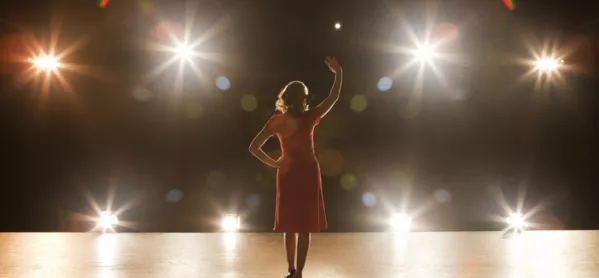I teach at a school on the edge of Dartmoor, which serves a huge rural catchment area. As a drama teacher, I am painfully aware of how far we are from anywhere if I want my students to watch a live performance.
Of course, we do arrange theatre trips, but there is a hefty premium to pay. On top of the cost of the tickets and transport, a day trip to London means getting up at dawn and returning in the wee small hours.
This is where stage-to-screen films have a role to play. Although not exactly the same as the real thing, these productions are filmed in theatres and provide a decent substitute for the atmosphere of live action.
Better than PowerPoint
For example, the Globe On Screen’s The Duchess of Malfi was filmed by candlelight in a purpose-built reproduction of a Jacobean indoor theatre. How much more vivid is that than trying to describe the experience using a PowerPoint presentation?
Or there was the recent National Theatre Live production of Of Mice and Men, starring Chris O’Dowd and James Franco. With such big names on the bill, we would have been lucky to get tickets even if we could have made it to London.
But our Year 11 students were able to see the production (almost) first hand at a cinema that was five minutes’ walk from the school. It gave them an opportunity to cement their knowledge of the plot, visualise the action and appreciate different interpretations of the characters. With the shift towards end-of-year exams in the new GCSE specifications, these kinds of resources are invaluable as revision tools.
A raw deal?
This might sound like we are giving our students a raw deal, but I really believe that watching a filmed production is better than never experiencing any kind of live theatre at all. We may be out in the sticks, but can still get a waft of the grease paint without prohibitive costs in time and money. “All the world’s a stage” - even in deepest, darkest Devon.
Here are my top tips for making the most of stage-to-screen films in class:
- Compare interpretations
Maxine Peake’s recent Hamlet at The Manchester Royal Exchange could be shown alongside a male interpretation, perhaps David Tennant’s 2008 BBC version, to prompt discussion on their different approaches.
- Get ahead of the curriculum
Take the opportunity to tackle a topic outside your usual curriculum. For example, explore 19th-century literature with key stage 3 students in readiness for the texts they will be studying at key stage 4. The Railway Children, filmed at the York Theatre Royal, is set just within the 20th century but still demonstrates a very different lexicon for students to get to grips with.
- Involve parents
An invitation to parents to join a trip to a local cinema is a great way of involving them in their children’s education. Small cinemas will often consider requests for screenings, so can offer more flexibility.
Harriet Davis is a teacher of English and former curriculum leader for drama.
Want to keep up with the latest education news and opinion? Follow TES on Twitter and like TES on Facebook
